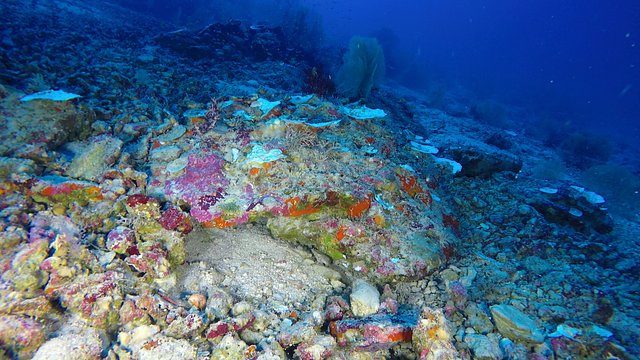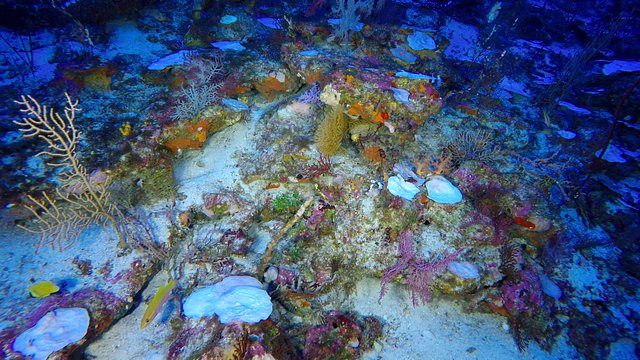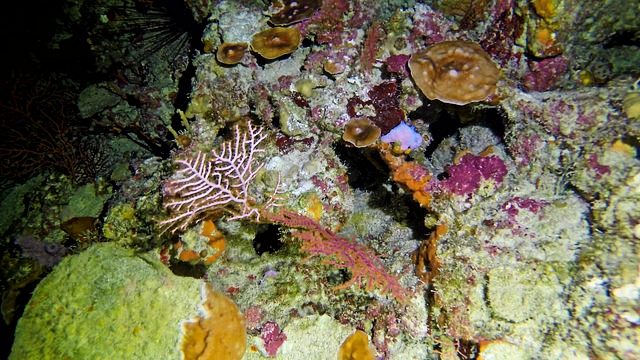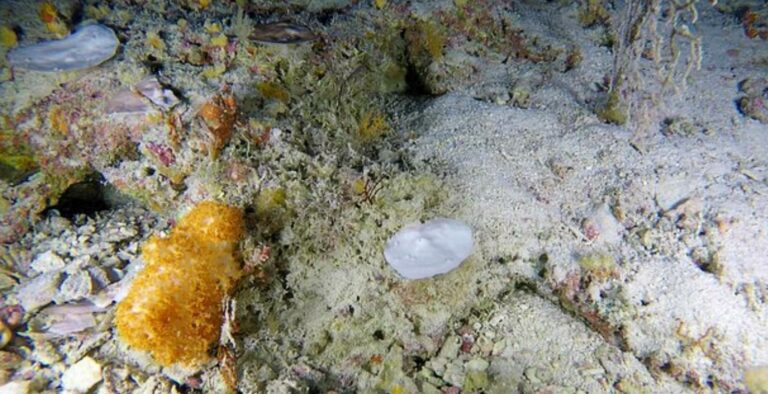UK scientists have discovered the deepest-known evidence of coral reef bleaching, at depths to around 90m at two atoll sites in the Indian Ocean’s Chagos Archipelago.
“Mesophotic” corals found between 30 and 150m deep had previously been thought immune to ocean warming, and able to maintain some balance as damage to shallow corals has been increasing in frequency and severity.
The damage at depth is attributed to a 30% temperature rise caused by an irregular oscillation of sea-surface temperatures known as the Indian Ocean Dipole, or Indian Niño. Multi-disciplinary researchers from the University of Plymouth found that this had harmed up to 80% of the reef in parts of the seabed.
“There are no two ways about it, this is a huge surprise,” said associate professor in physical oceanography Philip Hosegood, who led the recently published study. “Deeper corals had always been thought of as being resilient to ocean warming, because the waters they inhabit are cooler than at the surface and were believed to remain relatively stable.


“However, that is clearly not the case and – as a result – there are likely to be reefs at similar depths all over the world that are at threat from similar climatic changes.”
Contrast to the surface
The first evidence of deep bleaching was picked up four years ago by ROV-mounted cameras on the team’s research vessel. Where bleaching had occurred at depth, however, no such damage had been caused to shallower reefs in the area.
Subsequent data collection combined with that from satellites monitoring ocean conditions highlighted that over a period in which temperatures at the surface had barely changed, those beneath the surface had climbed from 22°C to 29°C.
“What we have recorded categorically demonstrates that this bleaching was caused by a deepening of the thermocline,” said lead author Clara Diaz. “This is down to the regional equivalent of an El Niño, and due to climate change these cycles of variability are becoming amplified. Moving forward, bleaching in the deeper ocean here and elsewhere will likely become more regular.”
However, the researchers returned to the same parts of the atoll in 2020 and 2022 to find that large parts of the deep reef had recovered.

“The oceanography of a region is impacted by naturally occurring cycles that are becoming amplified by climate change,” said Hosegood. “Currently, the region is suffering similar, if not worse, impacts due to the combined influence of El Niño and the Indian Ocean Dipole.
“While there is no way we can stop the thermocline from deepening, what we can do is expand our understanding of the impacts that these changes will have throughout these environments of which we have so little knowledge. In the face of fast-paced global change, that has never been more urgent.” The study is published in Nature Communications.
Also on Divernet: Chagos coral reefs take huge hit, CCR divers surface with deep-reef discovery, Remote Pacific coral reef shows some ability to cope with ocean warming, What will it take for coral to survive?

